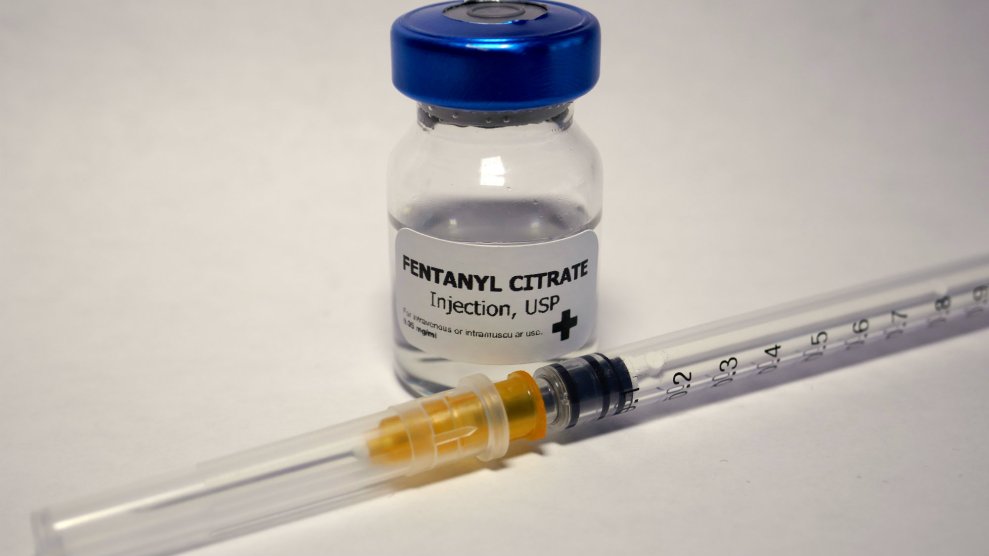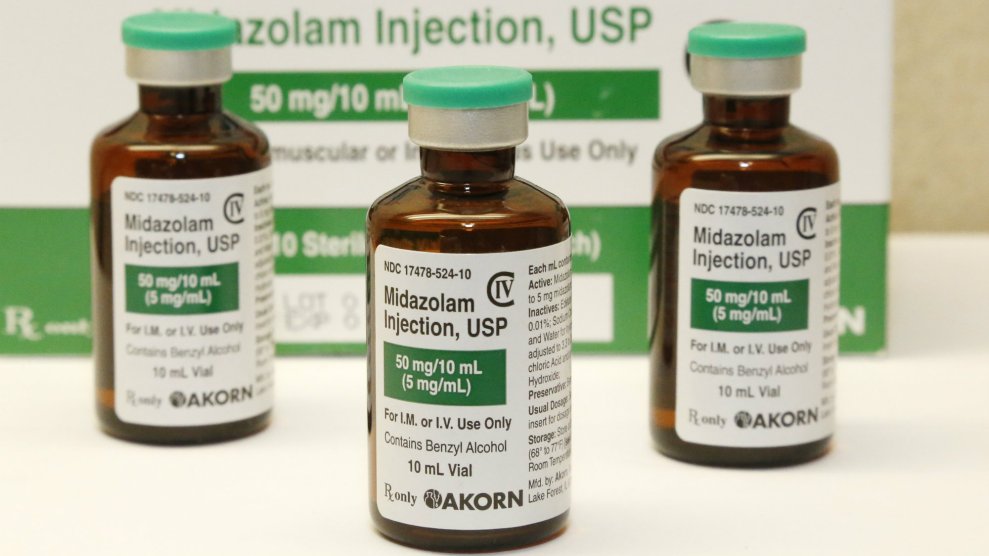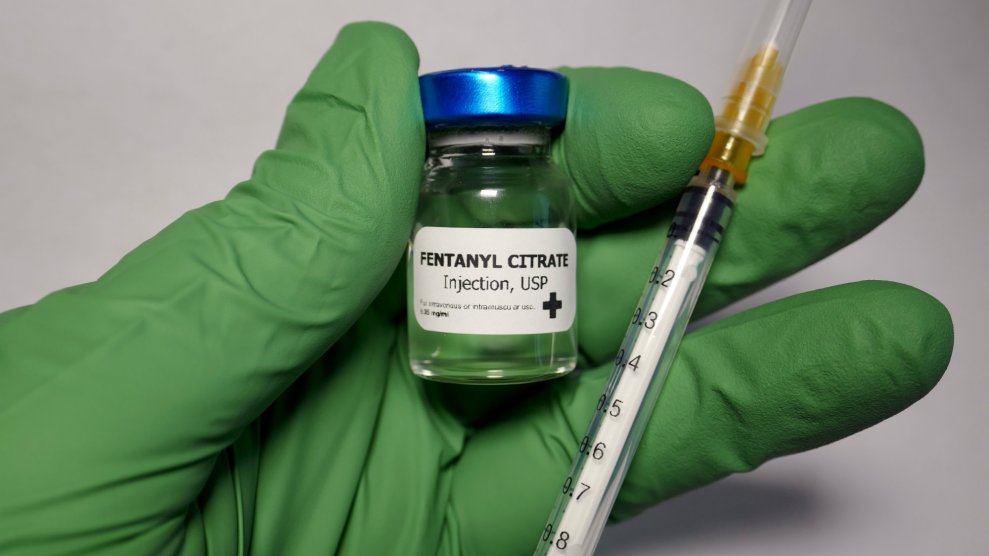
Hailshadow/Getty
Another pharmaceutical company doesn’t want Nevada to use its drug to execute Scott Dozier. On Monday, a district judge approved a motion filed by Hikma, the manufacturer of the powerful opioid fentanyl, to join the lawsuit filed by Alvogen, the maker of the controversial sedative midazolam. Midazolam has been blamed for several botched executions in the past and was going to be part of a three-drug combination used to execute Dozier. His scheduled execution in July was put on hold after Alvogen filed suit.
Hikma is arguing that the company specifically told Nevada in 2016 that its drugs could not be used for an execution. Alvogen made similar claims in its lawsuit, accusing the state of secretly obtaining the drug despite the company’s warnings that it does not approve of the use of its drugs for lethal injections. The third component of Nevada’s three-drug protocol is a muscle paralyzer that medical professionals said could mask the inmate’s pain during an execution.
Dozier has been on death row since 2007 for the 2002 murder of Jeremiah Miller. Beginning in 2016, he gave up any effort to appeal his sentence, and maintained that he wanted to be put to death. Just hours before Dozier was set to die on July 11, a district judge issued a temporary restraining order blocking the state from using the midazolam. In response, Nevada filed a petition with the Nevada Supreme Court, asking that the decision that halted the execution be thrown out and accusing Alvogen of mounting a public relations campaign. “[Alvogen] filed this lawsuit to salvage its image and shift the blame to the State for Alvogen’s failure to impose the controls that it was touting to anti-death penalty advocates,” the petition says. The state Supreme Court is now considering the petition.
Nevada now has to contend with yet another manufacturer and in response leveled similarly harsh criticism for Hikma, implying that it was attempting to distract attention from a far bigger problem. The deputy solicitor general called it “ironic that the maker of fentanyl, which is at the center of the nation’s opioid crisis and is responsible for illegal overdoses every day is going to…claim reputational injury from being associated with a lawful execution.”
But some states still plan to use these drugs. Carey Moore, who is set to die in Nebraska on August 14, will likely now be the first person executed with the powerful painkiller. The state intends to use the opioid in a four-drug protocol to execute the inmate, who shot and killed Maynard Helgeland and Reuel Van Ness five days apart in 1979. Nebraska has come under fire for refusing to disclose where its lethal injection drugs came from despite court orders to do so.
Assuming that the drugs were manufactured by Pfizer, Independent Nebraska state Sen. Ernie Chambers, a long time anti-death penalty advocate, urged the company to follow in Alvogen’s footsteps and sue the state in order to have the drugs returned and the execution halted. But the company said it had no records of Nebraska obtaining restricted drugs and was not going to file a lawsuit. “So where did the governor get his drugs?” Chambers wrote on Facebook after Pfizer declined to sue the state. “He’s not saying, and he’s refusing to obey the courts who have ordered him to share the information.”















